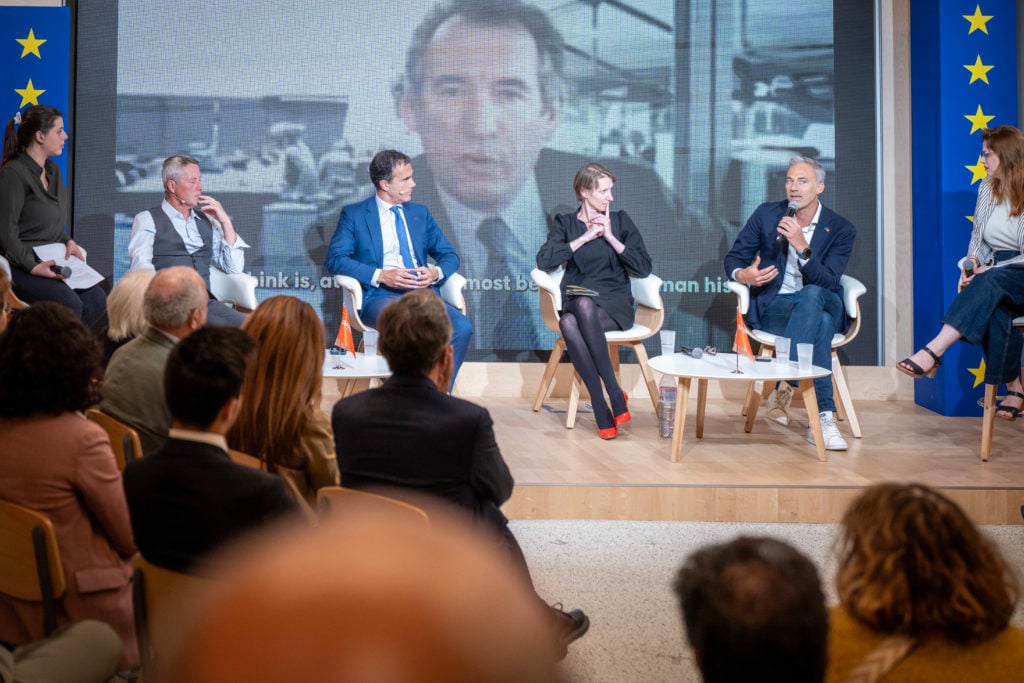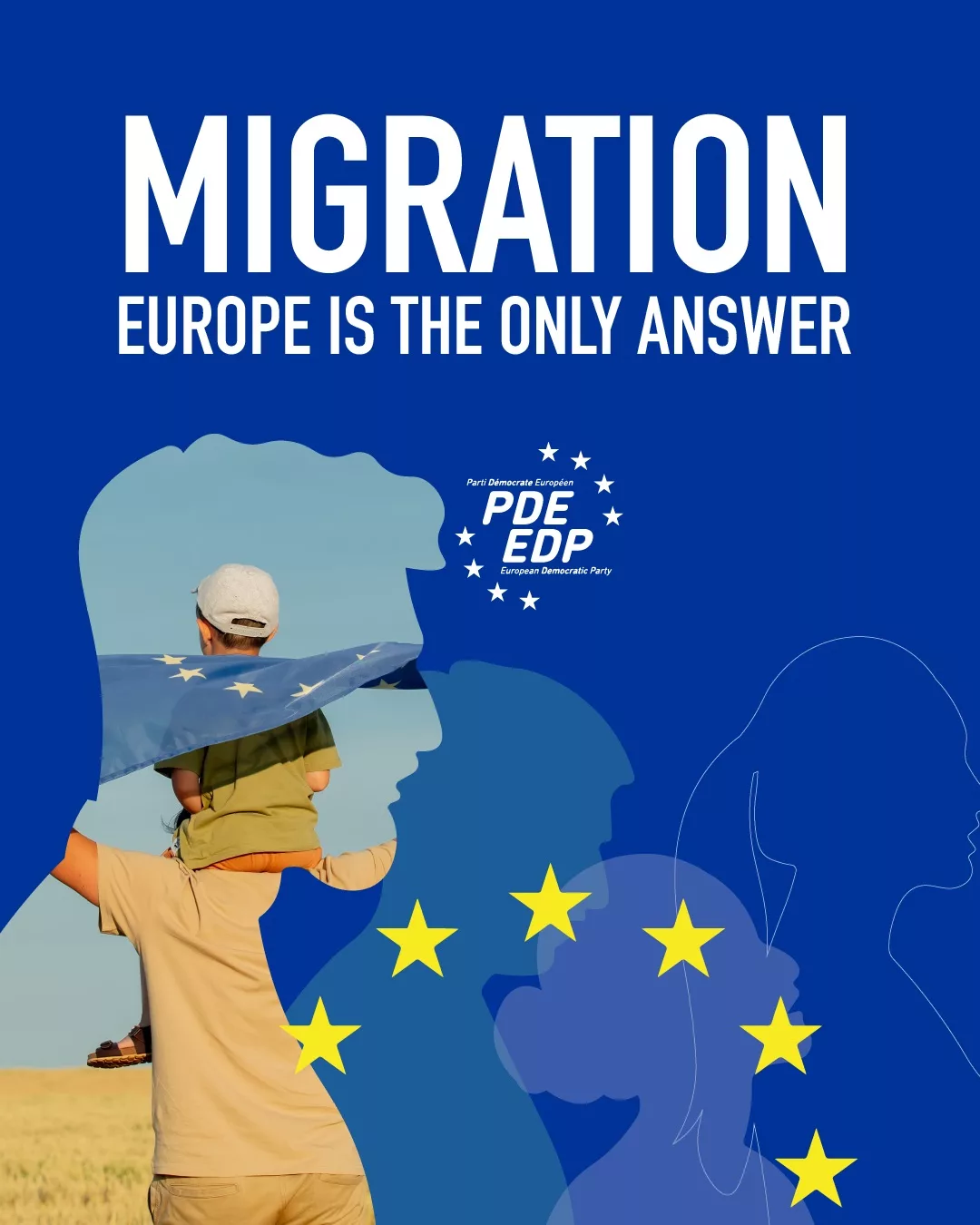European defence at the heart of the EDP
Paris, 15 May 2025 – Faced with an unstable geopolitical landscape and a growing threat on Europe’s borders, the European Democratic Party organised a round table discussion with the evocative title: “Agir ou subir: une défense commune pour une Europe puissante” (To act or to submit: a common defence for a powerful Europe). The event, the second in the ‘Lead or be led‘ campaign promoted by the EDP, followed the inaugural meeting held in Brussels on Monday 12 May with the participation of Matteo Renzi and Maxime Prévot. The title of the campaign echoes a Hamlet-like dilemma to which we Europeanists have a clear and unequivocal answer: we cannot be content to be dragged along by events or the decisions of others, but must be protagonists of our common destiny. Europe must lead, not follow; it must build its own strategic and political autonomy, defend its values and fully assume its responsibilities in the world.
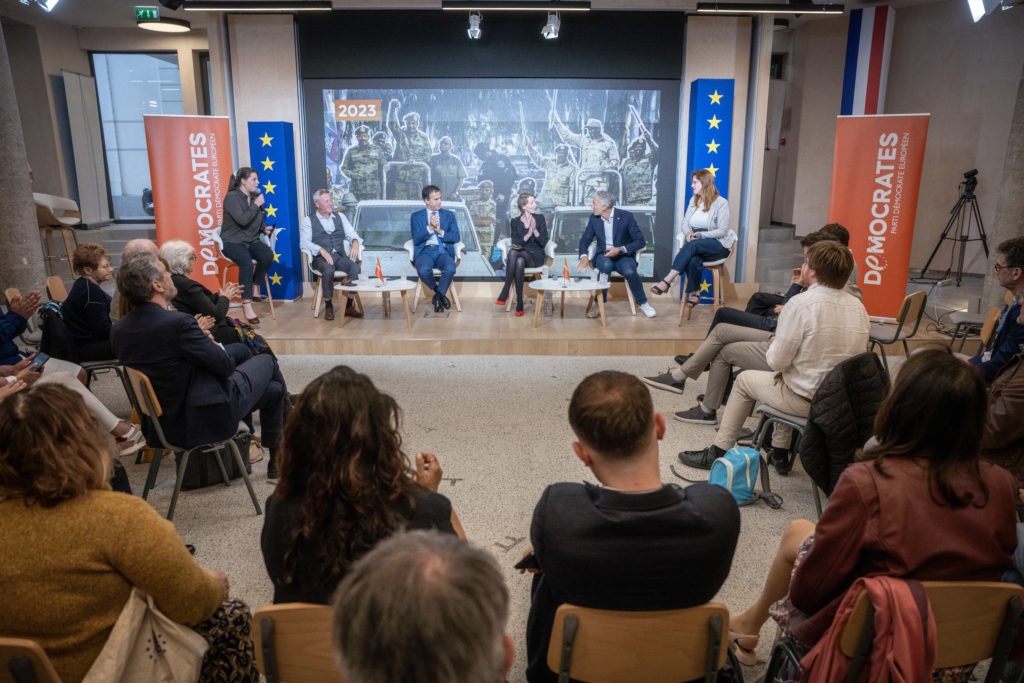
A frank and stimulating debate, moderated by Laure Niclot and Alice Bernard-Montini, with leading politicians such as Sandro Gozi, Maud Gatel, Yvan Verougstraete and Philippe Michel-Kleisbauer. Laure Niclot is President of Jeunes Européens France, a civic education association that promotes the participation of young people in European affairs. Alice Bernard-Montini is President of Jeunes Démocrates européens. As moderators, they guided the discussion by asking the guests specific questions and collecting comments from the audience.
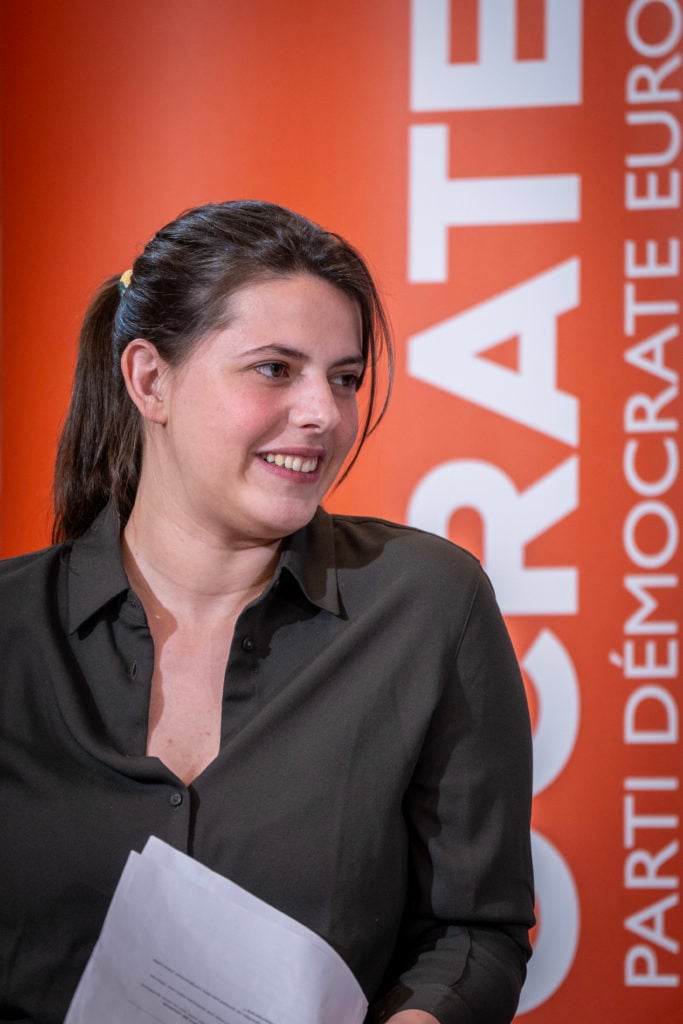
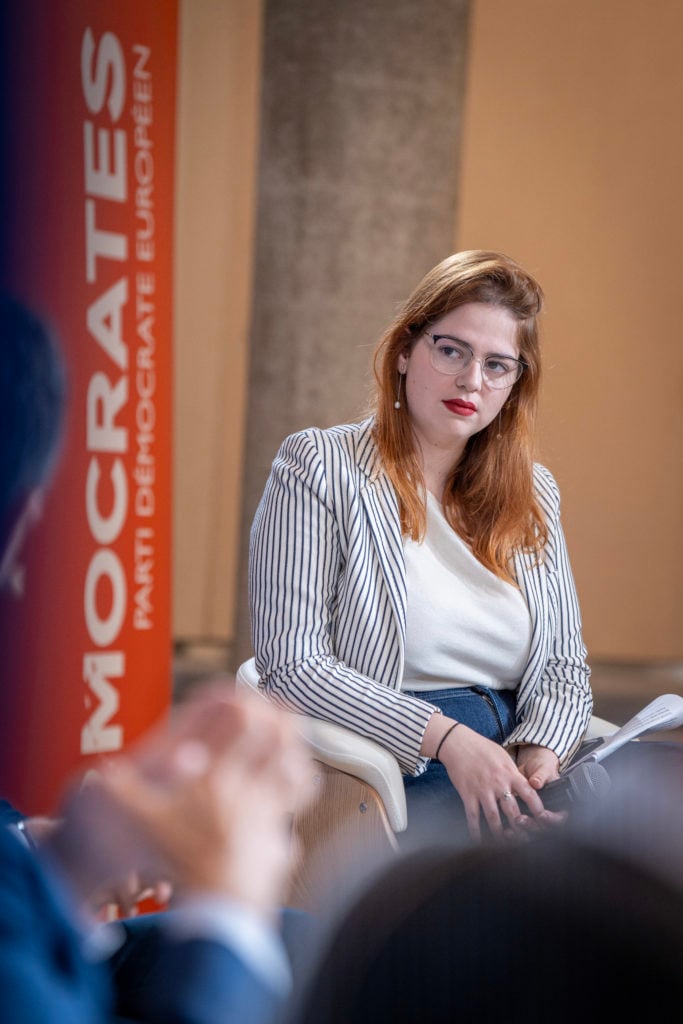
Sandro Gozi, MEP and Secretary General of the European Democratic Party, stressed the need for a “democratic international” to counter the global populist axis. Maud Gatel, Secretary General of MoDem, stressed the importance of reconciling common defence and social priorities. Yvan Verougstraete, Belgian MEP and leader of the Les Engagés party, spoke of the need for security that includes energy autonomy and digital resilience. Philippe Michel-Kleisbauer, former member of the French National Assembly and defence expert, brought a technical and operational perspective to the realism of European military cooperation.
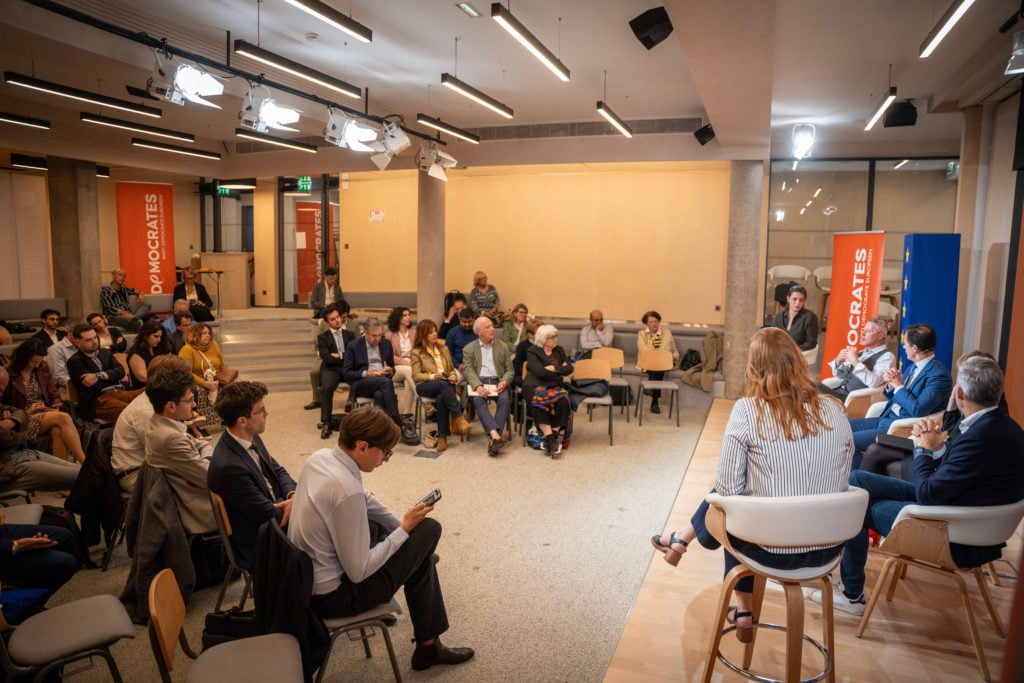
The starting point was clear: in a world where aggression is rewarded – as Putin’s behaviour in Ukraine has shown – Europe can no longer afford ambiguity or slowness. As Verougstraete pointed out, if we do not react strongly and consistently, we legitimise the law of the jungle.
Sandro Gozi sent a strong message: nationalists are already organised at global level, moderate democrats are not. We need a ‘democratic international’, a transnational network to counter Trump, Orban, Milei and Meloni and defend the liberal international order. According to Gozi, the time for waiting is over: foreign policy and security must become fully European policies.
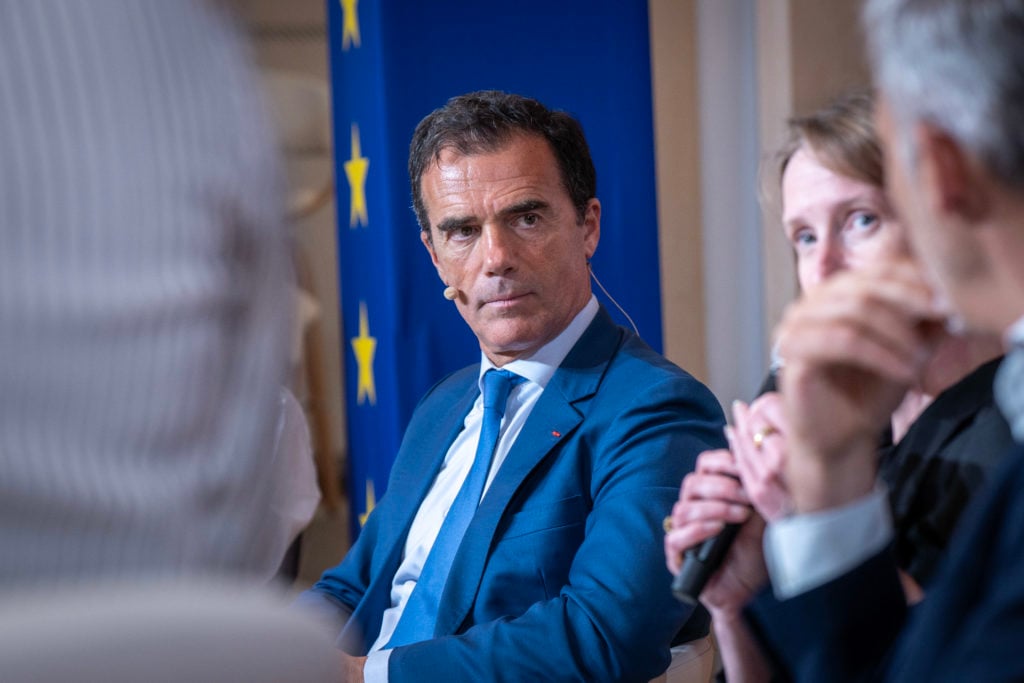
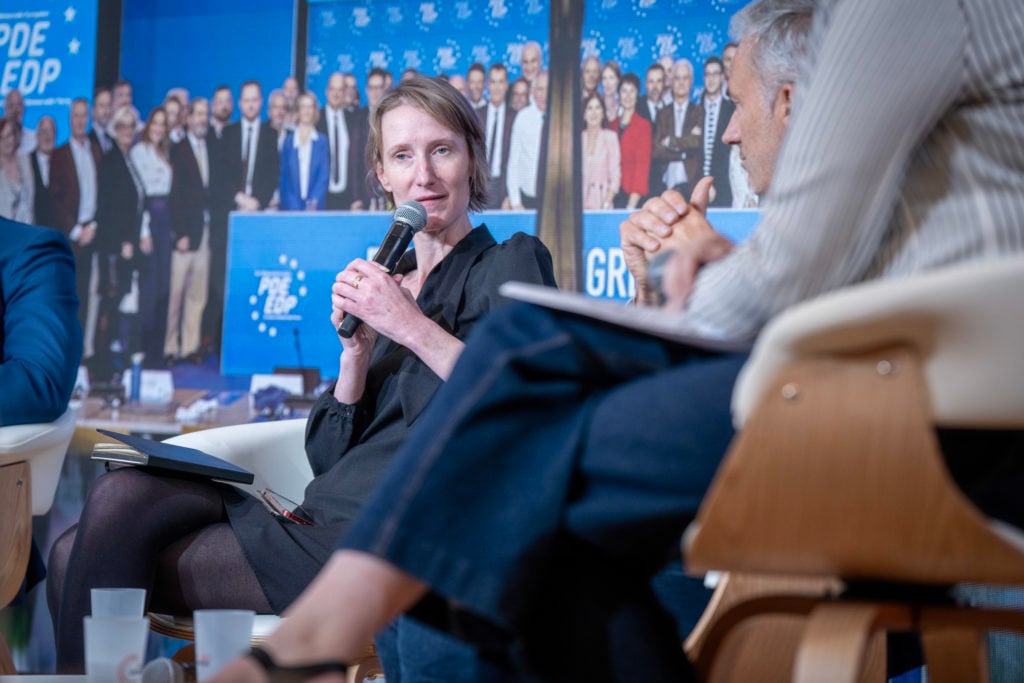
Maud Gatel touched on an essential point: how can we support common defence without sacrificing social rights, ecology and education? The answer is clear: there is no contradiction, there is a need for integration. This is also because, as Yvan Verougstraete pointed out, true security also depends on energy and technological autonomy. According to him, modern defence includes digital resilience, industrial autonomy and environmental protection.
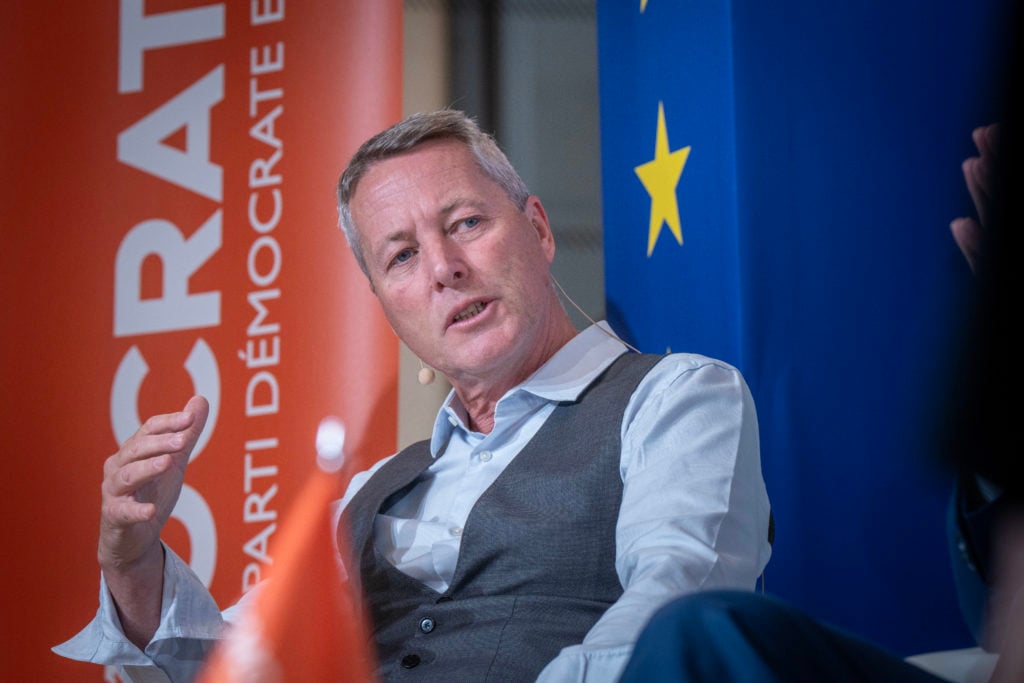
Philippe Michel-Kleisbauer raised the issue of nuclear deterrence: should it be Europeanised? No, he said clearly, “we cannot and must not dream of a new European army”. It is better to focus on pragmatic cooperation between existing armies, without undermining national sovereignty, but strengthening it through integration.
In the final debate with the audience, a crucial question emerged: what to do when some member states sabotage European unity? The answer from many speakers was clear: the principle of unanimity must be overcome. We cannot allow two pro-Putin governments to block the whole of Europe,” said Verougstraete. And if necessary, the sanctions provided for in the Treaties should be used.
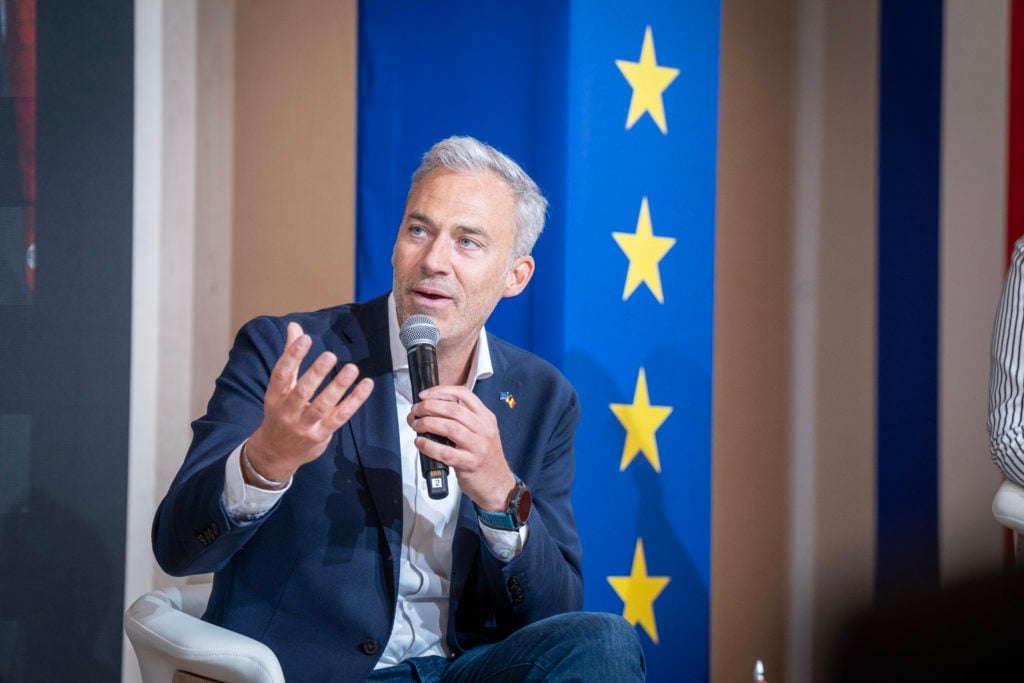
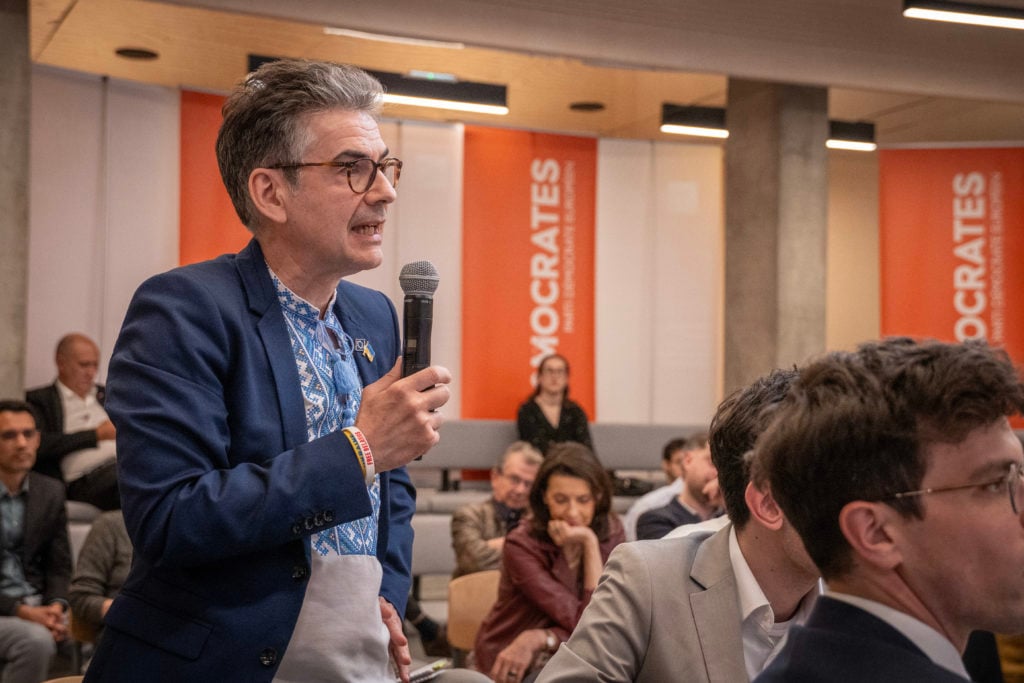
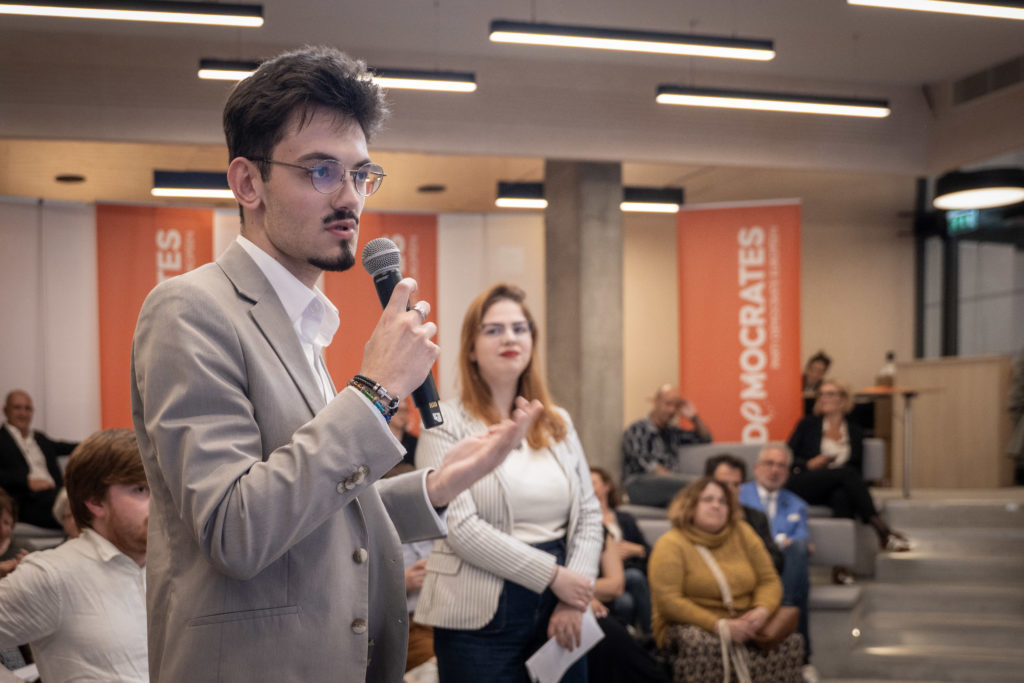
The final message was shared by all: it is time for a Europe of political will. We can no longer wait for the slowest. We need a group of countries ready to lead, a vanguard that will build a European defence pillar, complementary to NATO but capable of acting autonomously. Not to militarise Europe, but to enable it to defend its values: freedom, democracy and peace.
Conclusion: the Paris meeting showed that another Europe is possible – stronger, more united, more responsible. But it needs political courage. Act or suffer. The choice is urgent.
